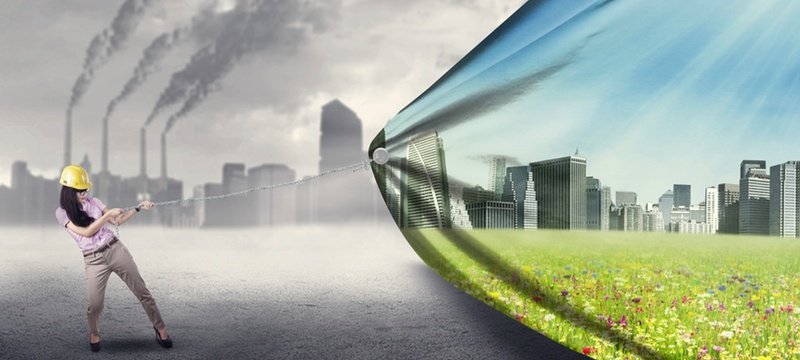The World Environment Day (WED), celebrated every year on June 5, is the United Nation’s principal vehicle for encouraging worldwide awareness and action for the environment, to protect nature and the planet Earth. It also a day for people do something positive for the environment, galvanizing individual actions into a collective power that generates an exponential positive impact on the planet.
The first World Environment Day was celebrated in 1973. Since then it is hosted every year by a different city with a different theme. The 2014 theme for World Environment Day will focus on “Small Islands and Climate Change”, and the official slogan for this year is “Raise Your Voice Not The Sea Level”.
World Environment Day is the opportunity for everyone to realize not only the responsibility to care for the Earth and to become agents of change. Do you want to make your voice heard this year for the environment? The call is to raise our voice in solidarity with one another, particularly with the citizens of the small island states. Whether it is to organize clean up campaigns, food waste reduction initiatives, walk-to-work days, plastic bans, art exhibits, tree-planting drives, concerts, dance recitals, recycling drives, social media campaigns and different contests – every action counts. Raise you voice and make a difference!
Here are some things that you should know about the environment:
1.
The planet adds 77 million people each year, the equivalent of 10 New York Cities.
2.
Worldwide some 300-500 million tons of hazardous waste are produced each year, where 80-90 percent come from industrialized countries.
3.
It takes 500,000 trees to publish the NY Sunday Times – every week! Recycling a single run of this newspaper would save 75,000 trees.
4.
If all of America’s newspaper was recycled, we would save about 250,000,000 trees each year.
5.
Recycled paper only creates 25% of the pollution that new paper creates when making it into new products.
6.
When a newspaper is recycled, it takes only seven days from to become a brand new newspaper!
7.
Paper can be recycled only six times. After that, the fibers are too weak to hold together.
8.
Recycling 1 short ton (0.91 t) of paper saves 17 mature trees, 7 thousand US gallons (26 cubic meters) of water, 3 cubic yards (2.3 cubic meters) of landfill space, 2 barrels of oil (320 liters), and 4,100 kilowatt-hours of electricity – enough energy to power the average American home for six months.
9.
27,000 trees are felled each day for toilet paper.
10.
A glass bottle will take 40,000 years to decompose, if it’s not recycled.
11.
Recycling a single glass bottle will save enough energy to power a 100-watt light bulb for four hours.
12.
Recycling a one aluminum can will save enough electricity to power a TV for three hours, or the equivalent of a half gallon of gasoline.
13.
Plastic take 450 years just to begin decomposing. It takes another 50 to 80 years to be completely decomposed. This also means that every single piece of plastic even made has not even started to decompose!
14.
It only takes 25 recycled plastic bottles to make a brand new fleece jacket.
15.
Only 1% of plastic shopping bags are recycled. Most plastic bags they go into landfills do not stay there. They are caught by the wind and enter trees, oceans, and other parts of nature.
16.
13 billion plastic bags are made every year, about 300 per adult. Use cloth bags to help reduce the number of plastic bags made.
17.
In one person’s lifetime, using a cloth bag will save over 22,000 plastic bags!
18.
40% of drinking water comes from plastic bottles.
19.
It is estimated that 50,000 species living in tropical rain forests become extinct each year. That is 137 species per day or 6 species per hour.
20.
Due to human impacts, the world loses 7% of its topsoil every ten years. It takes 1,000 years
to produce one inch of topsoil.
21.
Ten percent of coral reefs have already been damaged beyond repair, and if we continue with business as usual, World Resources Institute projects that 90% of coral reefs will be in danger by 2030, and all of them by 2050.
22.
If every car carried one more passenger during its daily commute, 32 million gallons of
gasoline would be saved each day.
23.
The Earth’s surface is 70% water, but many people go without access to fresh water every day. Turning the faucet off when you’re brushing your teeth and taking quicker showers will use less water and leave more for others to use.
24.
Turning your home’s thermostat down by a single degree can save your family 8% in heating costs.
25.
Using energy efficient appliances can save enough money from less electricity usage that it can pay for the entire appliance!
https://youtu.be/3DJzP3oRExk
Some things you can do to make a difference:
- Remember to Reuse, Reduce, and Recycle. There is a reason we say these in this order. First we try to reuse things. If we can’t, then we try to reduce what we use. Recycling is the final step where.
- Turn off the water when brushing your teeth. The more people who turn off water faucets when not in use, the more water there is for emergencies.
- Turn of lights when you leave a room.
- Play outside. Video games and computers use a lot of energy and have you sitting all day. Be active outdoors and use less energy, have more fun, and be more fit!
- Print on both sides of the paper when using your computer’s printer.
- Educate your child to be a green kid. The habits will last as they grow up into an adult.
- Remember to recycle or sell your old devices instead of throwing them in the garbage.
